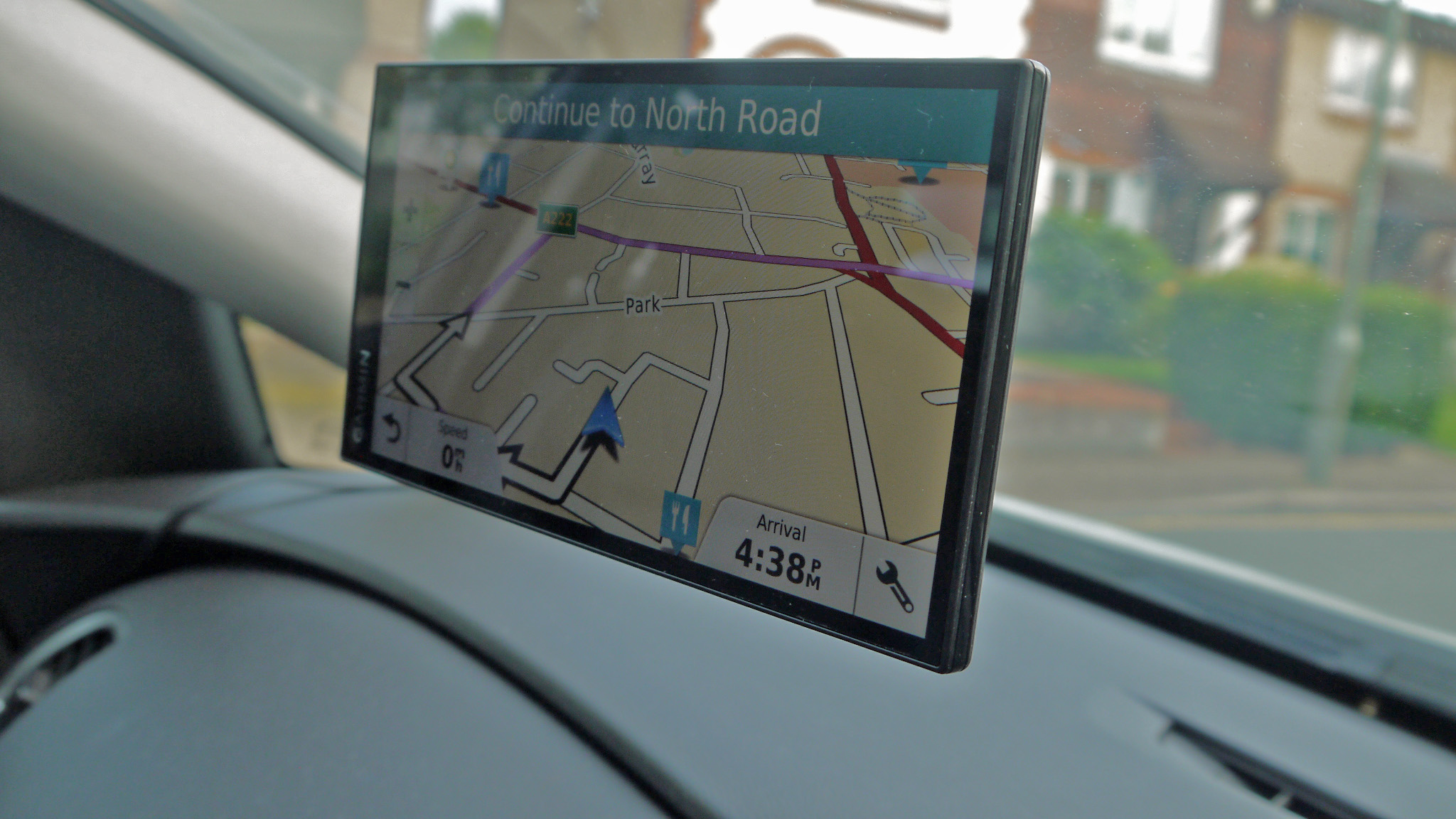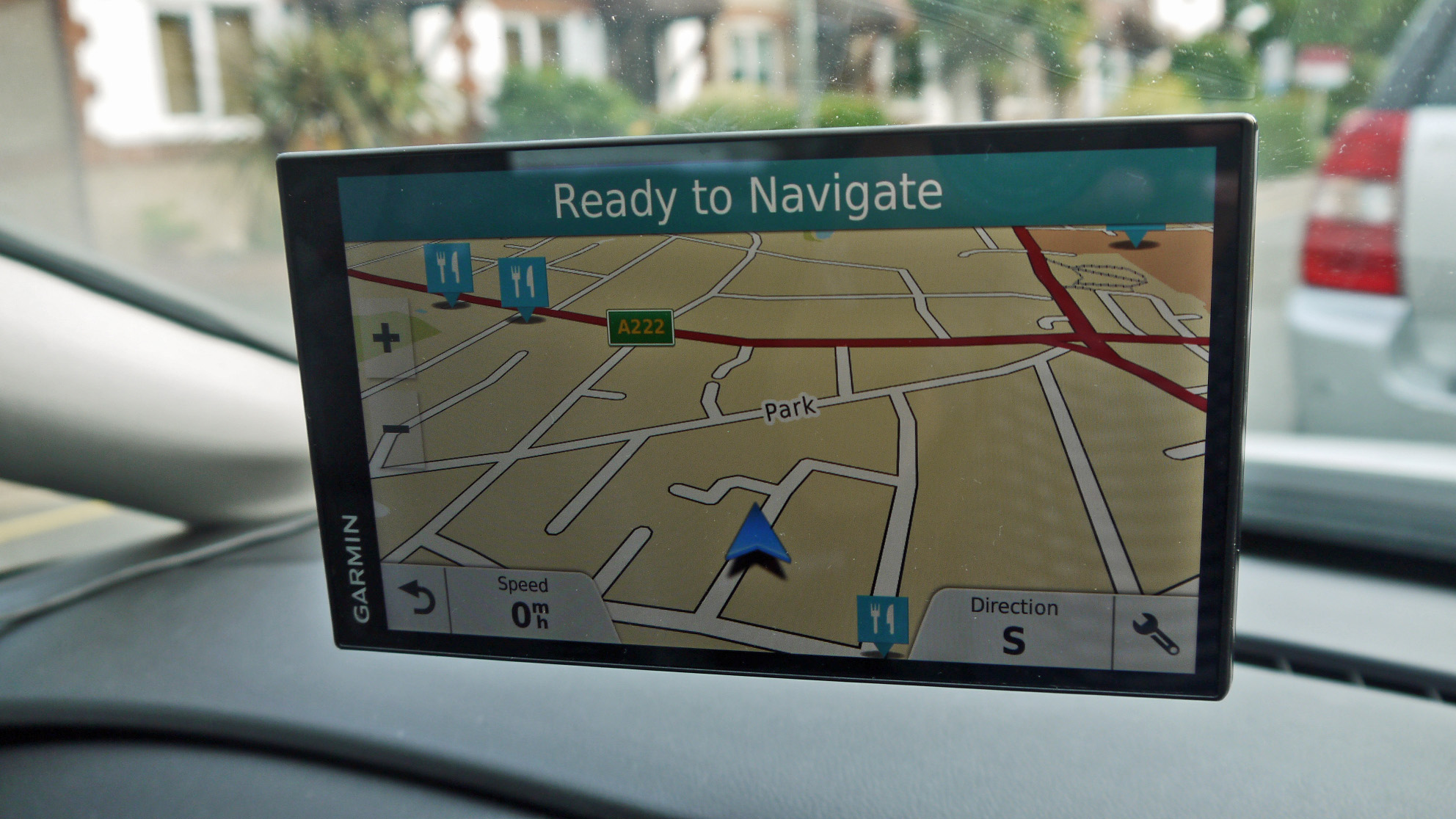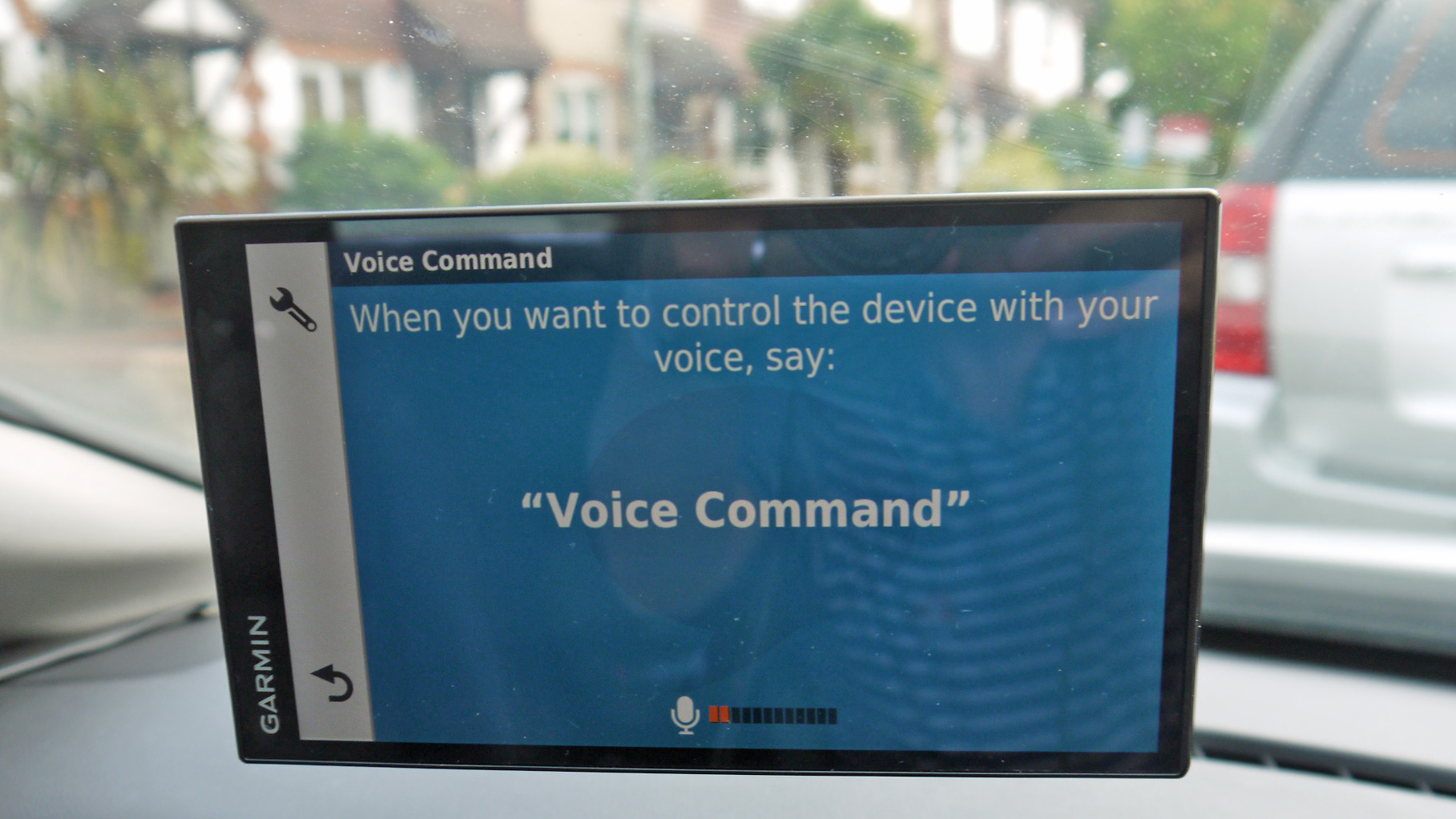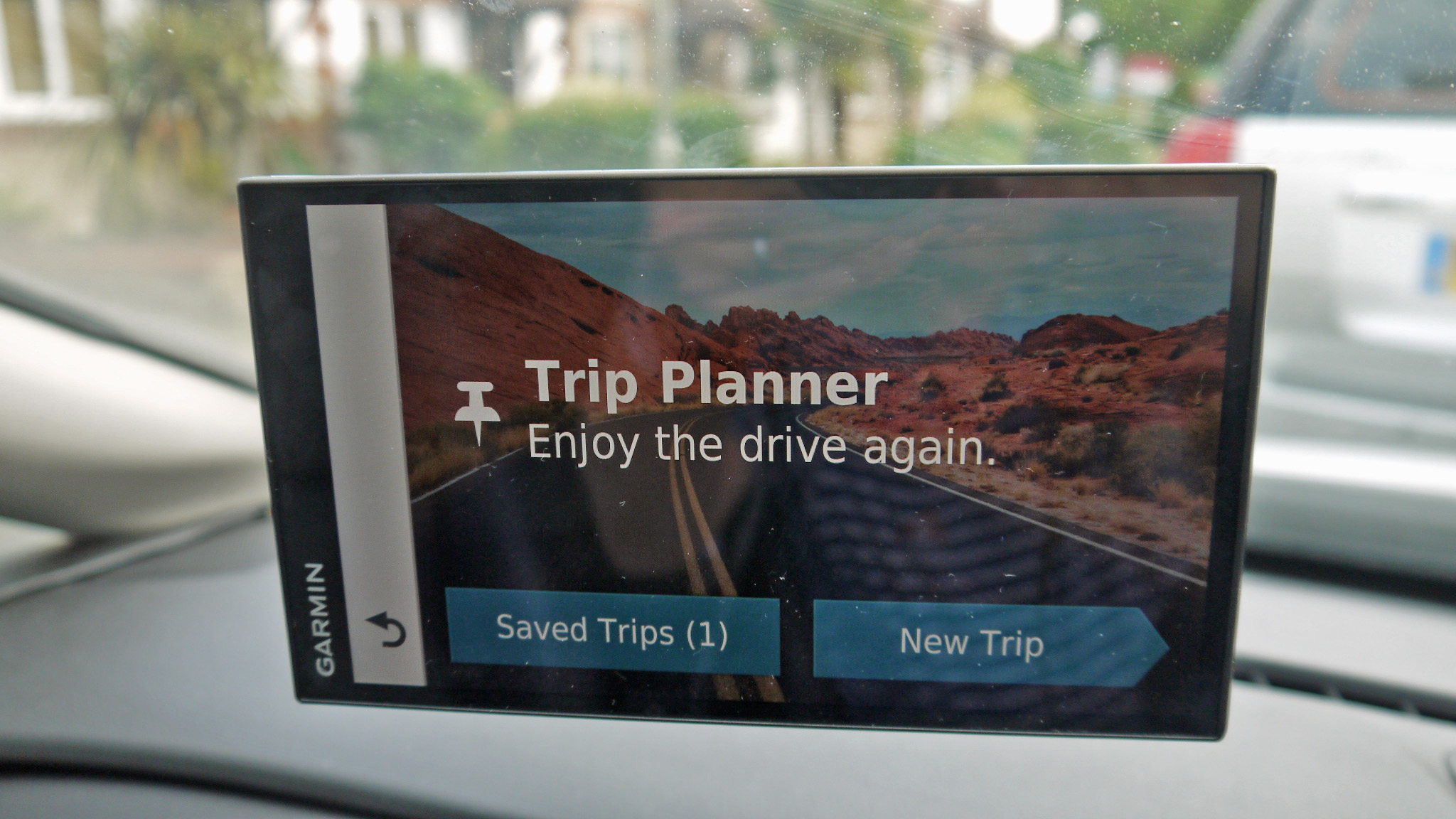TechRadar Verdict
Garmin has created a premium-looking sat nav that's packed with features you'll want to use. Its screen is responsive, the information it offers clear and concise. Yes, it's expensive but it's one of the best GPS systems available to get you from A to B.
Pros
- +
Fantastic build quality
- +
Great touchscreen controls
Cons
- -
Expensive
- -
Battery could be better
Why you can trust TechRadar
Purchasing a sat nav is not a 'once a year' thing. One you decide you are going to buy one, the hope is that it will be with you for the long run. And when it does eventually outlive its purpose then it would have to take something very impressive to turn your head from the free efforts provided by Google and the like.
The Garmin DriveSmart 61 is a head turner, a device that proves that if you spend enough a sat nav can transcend the bulky GPS devices of old and offer something that's as sleek and good-looking as a premium smartphone.
Long gone are the days of resistive screens and button mashing, the Garmin DriveSmart 61 proves that you can have something attached to your windscreen that both delivers in performance and looks decent while doing it.
It's a shame, then, that you have to use a plastic ball and socket mount. Magnets would have suited this premium device a whole lot better.
Design and features
The Garmin DriveSmart 61 is (pretty much) all screen. At 7-inches (1024 x 600 pixels), you get an impressively sized widescreen device. The bezel is minimal, which means the screen stretched pretty much to the edge - there's no ungainly plastic border here.
The look is a little at odds against Garmin's bright, garish user interface. There's nothing wrong with it as such, but it's quite a contrast to the stylish exterior.
We like its simplicity, though. The worst thing that can happen when you are about to set off on a journey is to be bombarded with myriad menus.
Garmin simply has two options to begin with: Where To? and View Map. Head to Where To? and you can type in your destination, which is easy thanks to the generous sized screen. As soon as you start typing, destination options become available.
- For the best GPS devices around, head to our best sat nav guide.

If your destination just so happens to be brand new, then there is no need to panic as the Garmin DriveSmart 61 has Wi-Fi capabilities. This means that downloading updates and new maps is a breeze - none of that smartphone tethering to make things work.
The only time things get a little clunky is if you want traffic update. For this, Garmin uses DAB to update.
Normally this would be fine but the receiver is in the cigarette lighter charger cable - a cable that doesn't offer the ability to connect anything else into the charger.
For us it meant that we couldn't use our second-party DAB radio system in the car when the sat nav was on as this also needed use of the lighter port.
There's a touch of irony in the fact that we had sacrifice listening to DAB for another device that used DAB to communicate information. It's a niggle but one that won't cause too many people problems.
Features
Back to the UI and things are simple but effective. The map setup may jar a little for those who are used to Google Maps or TomTom but we liked it.
Paying a bit extra for this premium sat nav does have its benefits that is beyond being skin deep and that's the fact that you will get updated maps for the whole of Europe or the US, depending on which model you go for. Given map bundles are usually the costlier aspect of sat navs, this is a brilliant bonus.
As for the maps themselves, the main thing you need to know is that in a bid to declutter the whole screen, most relevant - non map based - information is given a side panel on the right.
This means you can see if there are any traffic buildups coming up at a glance, as well as how much time you have left on the journey and alternative routes if you feel like you want to stray off of the beaten path.

Slivers of other information frame the map at the bottom - a dint for speed and another for time of arrival. Not once did the screen feel cluttered - Garmin has done a good job of making sure that you don't get bogged down in the details.
If you want to take a call on your phone, you can also do this through the sat nav. Hands-free calling comes courtesy of Smartphone Link, it's a bit of a 'mare to setup but it does work and will benefit those whose cars have yet to add this functionality.
If you do take a call while the sat nav is in use then the caller ID comes up on the right hand sat nav as well as the ability to hang up on the caller.

When it comes to using your voice, we much prefer the voice control that comes as standard with the Garmin DriveSmart 61. It's far from perfect - we had to say our destination a number of times before it got it right - but the thought is there.
Voice will be such an important part of car control going forward, it's great to see Garmin trying out this functionality - even if it hasn't quite reached its full potential yet.
Final verdict
Other USPs include the ability to search through TripAdvisor recommendations and you can even check in with Foursquare. While the TripAdvisor information is interesting, it's only really of use if you want to do some proper exploring of the place you are visiting.
It's more likely you know what you want to do in the place you are going to so this is a nice addition but by no means a must have when it comes to sat navs.
And that's the things with the Garmin DriveSmart 61 LM-T. It's got many functions and features that you just won't bother with but it doesn't matter as it does its main purpose - to get you from A to B - so well, that anything on top of that is simply a bonus.
Marc Chacksfield is the Editor In Chief, Shortlist.com at DC Thomson. He started out life as a movie writer for numerous (now defunct) magazines and soon found himself online - editing a gaggle of gadget sites, including TechRadar, Digital Camera World and Tom's Guide UK. At Shortlist you'll find him mostly writing about movies and tech, so no change there then.

